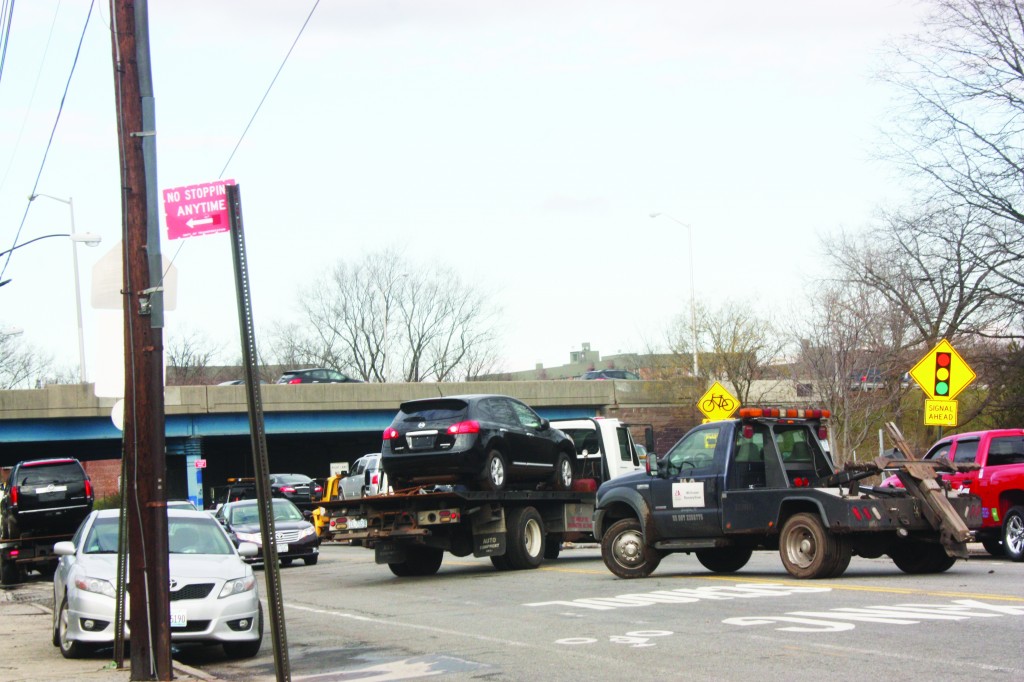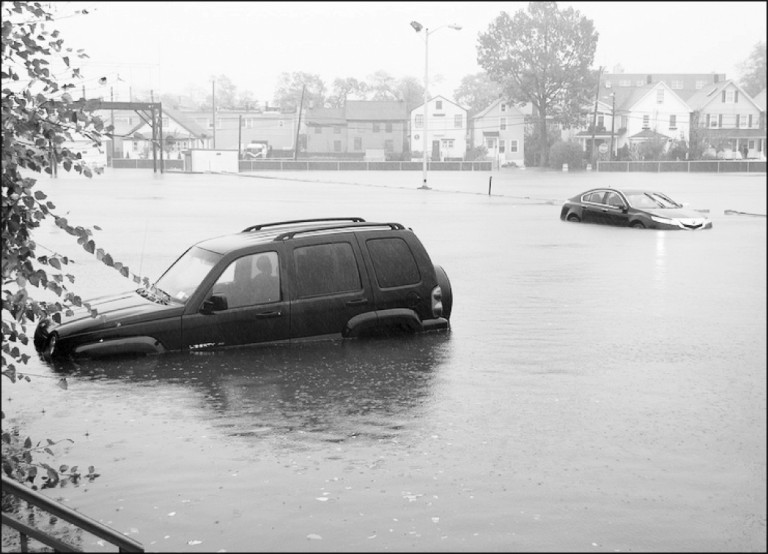The automobile was one of the easily overlooked casualties of Superstorm Sandy.
As storm surges overwhelmed large swaths of Queens, leaving thousands without power and homeless, automobiles were like sitting ducks as seawater slammed through local streets.
More than a month after the storm, thousands of automobiles in the borough have been ruined. Vehicles which take salt water to the dash are likely totaled by insurance companies.
In New York, a mandatory crush law is in effect for all cars that have been flooded with saltwater, however, this is not true in some other states.
Now consumers searching to buy used vehicles have to beware of the myriad of scams that have been made possible by this historic and devastating storm.
That pristine-looking car purchased to replace one drowned in saltwater may have been flooded, too.
Jimmy Aurora, the owner Sonny’s Auto Collision in Ozone Park, says he want to warn people that cars that have been turned in for junking can be shipped out of state and have their titles changed there.
This process, known as “title washing,” means that flooded and salvaged cars can be re-registered in other states with clean titles, and then sold without disclosing the damage.
For consumers looking to verify a vehicle’s history, services like CARFAX can provide detailed vehicle histories. Aurora said that Sonny’s would be willing to do a complimentary inspection of a vehicle that is to be purchased used. This service will be offered free as long as the individual can show proof of a Howard Beach residence.
Of the thousands of cars that were destroyed during the storm, many have yet to be identified, said Robert Cotrone, the owner of BAM’s Auto Body in Ozone Park. This creates a host of new problems.
“People were just calling up to have their cars picked up in a panic,” Cotrone said.
“Insurance companies have not even seen many of the cars,” and when they come to see them many can’t be identified as belonging to their particular insurance company because everything was so chaotic when vehicles were picked up that all information was not submitted by people.”
A month after the storm, the National Insurance Crime Bureau estimated damage was inflicted on 230,000 vehicles in total across several states. New York was hit the hardest, incurring 130,000 in insurance claims. The NICB encourages prospective buyers to first examine the car for evidence that it has been flooded before, searching for signs of rust, water damage and mildew. The organization suggests taking a close look at the title and ownership papers.
“Some people refurbish and resell flooded cars without disclosing their histories, so it’s important for buyers to beware when buying used vehicles going forward,” Dept. of Consumer Protection Commission William Rubenstein told CTWatchdog.com. “While a clever dealer can restore a flood-damaged car so that it looks almost new, buying a flood-damaged vehicle comes with a lot of risk, and for many drivers, would not be a good choice. Electrical issues, functional problems, even mold and mildew are all to be expected. Once a car is flooded, the manufacturer’s warranty is usually void.”
Car buyers can use the NCIB’s VinCheck service, which runs a car’s vehicle identification number through its database of cars that have been reported as salvages. 88 percent of auto insurance companies in the nation are represented in this database.
The Allstate Corporation estimated that at the end of November, the insurer had lost a little over $1 billion in the month of October, pre-tax and net of reinsurance (the insurance purchased by the insurer as a means or risk management). According to their November catastrophe report, approximately $340 million of claim payments have been made as of Nov. 26. Automobiles represented approximately 40 percent of the total gross losses, with 78 percent in New York, 19 percent in New Jersey and 3 percent in other states.
More so than insurance companies, the long road to recovery will be especially expensive—and hazard-ridden—for automobile owners and consumers.

Hundreds of cars each day are being transported from local holding pens throughout the storm ravaged community of Howard Beach. Local two operators say it will be weeks before the lots are thinned out and every car is transferred to insurance carriers.
By Ross Barkan

